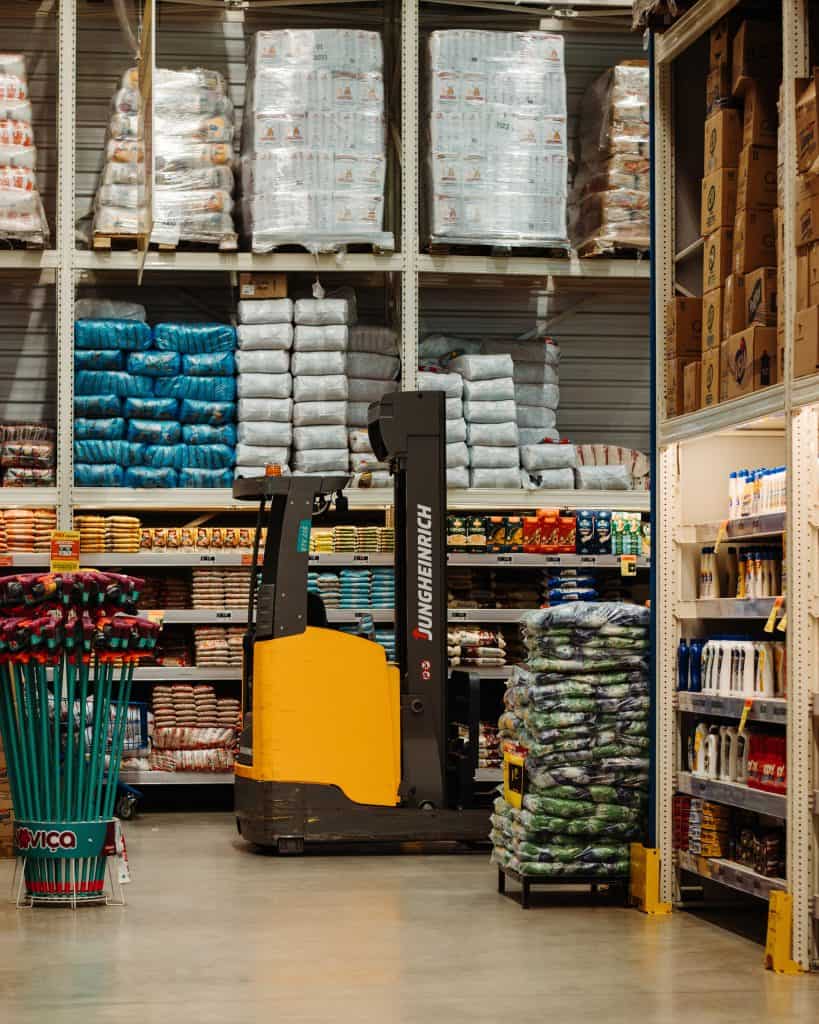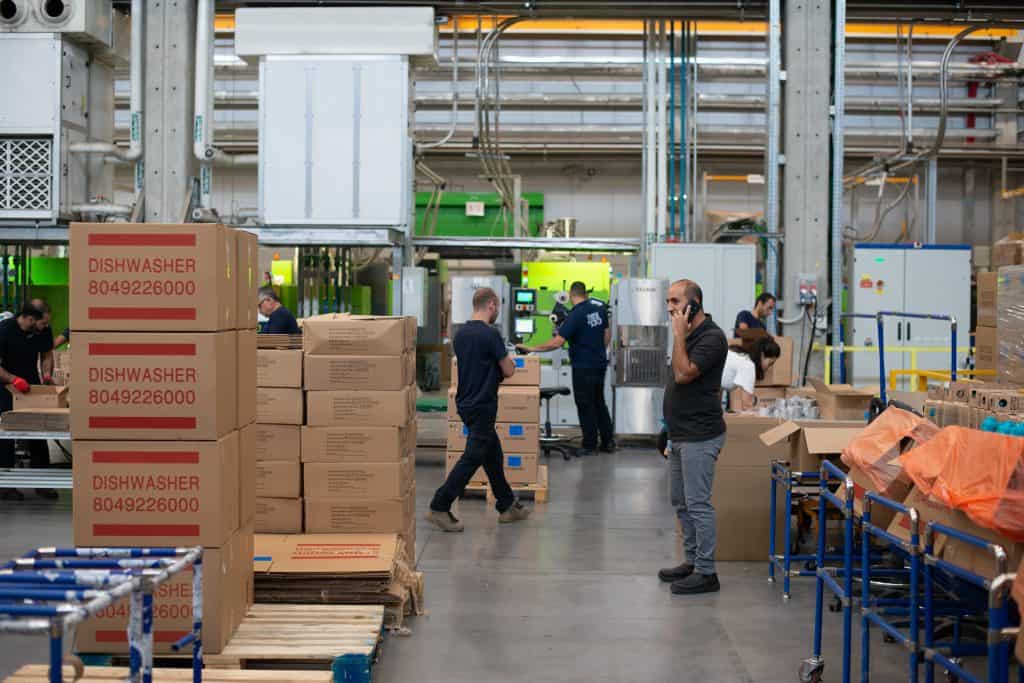Warehouse picking has a pretty simple definition and is not at all a unique process. In fact, you might already know what warehouse picking is but by a different term. Warehouse picking is the same as order fulfillment, order preparation, or the like.
Warehouse picking is the process of finding items within a warehouse or fulfillment center and preparing them for shipment to customers. But there’s a lot of different ways to go about warehouse picking and to ensure that it’s done as effectively and efficiently as possible. Let’s dive in!
What is Warehouse Picking?
Warehouse picking is the process of selecting and collecting items from their storage locations within a warehouse to fulfill customer orders.
It's the heartbeat of ecommerce operations, where items are selected, packed, and dispatched to their final destinations. Efficiency and automation in the order-picking process can make or break a business, impacting everything from customer satisfaction to the bottom line.
Top Warehouse Picking Strategies

As previously mentioned on our blog, there are many warehouse picking strategies utilized throughout the warehousing industry. Here are some of the top warehouse picking strategies:
Zone Picking
The first step in zone picking is to establish zones throughout your warehouse. Zones should be specifically based on the different items that you regularly pick at the same time. For example, if you often ship several items together, then placing them all in the same zone will allow you to visit one area in your warehouse whenever packing a specific order.
Using this same process throughout your entire warehouse allows you to quickly and more easily pick regular orders, thus saving you time and effort.
Discrete Picking
Discrete picking is one of the most popular of all different picking methods. This is likely because it’s incredibly easy to implement. Another reason this strategy is popular is because there isn’t a lot of strategy to it. All the picker needs to do is pick items one at a time until the order is complete. Because it’s as simple as walking through the warehouse and grabbing the items needed for the order, it’s not ideal for a large warehouse.
If you have small inventory counts, limited number of SKUs, or a small warehouse, discrete or piece picking could be a good strategy for you and your warehouse.
Batch Picking
If you have a really large warehouse where order pickers will need to travel long distances from one side of the warehouse to the other, batch order picking could be the right strategy. When you implement this strategy, your pickers will pick a group of orders all at the same time. So, instead of making multiple trips to different areas, they will get as many items as they need from each SKU every time they visit that pick location.
Large warehouses will primarily benefit from this strategy by saving on travel time when order picking. The pickers appreciate not having to walk across the warehouse multiple times for the same items.
Wave Picking
Similar to discrete picking, during wave picking, there are specific picking scheduling windows. This is done to help maximize packing and shipping operations. With wave order picking, pickers go through the warehouse and take each item they need for a specific order but only during the approved and scheduled picking time. This allows the warehouse to work at maximum efficiency.
This strategy works best if different members of the warehouse team work in multiple areas of the business. By scheduling a picking time, the warehouse manager can ensure that everyone’s time is spread evenly.
Combined Warehouse Picking Strategies

To become even more streamlined in your operations and find the perfect fit for your warehouse order picking efficiency, consider combining multiple warehouse picking strategies. Here are a few examples of how you might combine two or more of the above strategies.
Zone-Batch Picking
In this hybrid strategy, pickers are assigned to both a zone and a batch. This allows your pickers to visit the zone and pick everything they need within that zone. In this case, they’ll be able to visit that specific zone less often and spend more time packing and shipping orders.
Zone-Wave Picking
Zone-wave picking is another way to improve efficiency and time on task for your warehouse employees. Each picker will be assigned a specific zone with specific SKUs stocked in their zone. After that, there is a specific schedule assigned. The pickers are required to do all of their order picking during that assigned time slot.
Zone-Batch-Wave Picking
A three-way hybrid, zone-batch-wave, is essentially a combination of the last two strategies that we mentioned. If you desire to use this strategy, you’ll need to assign specific pickers to a zone where they will pick all SKUs needed for orders within that zone. Finally, there are multiple scheduling windows per shift where pickers pick two or more orders at one time.
Warehouse Picking Equipment

Almost all if not all warehouse picking activities can be done manually. There isn’t ever a “need” for additional equipment unless you’re warehousing and moving large pieces that humans can’t handle. That being said, using equipment within your warehouse can help to streamline processes, improve efficiencies and decrease the number of man-hours it takes to complete. Here are some examples of equipment that might be used throughout a warehouse.
Heavy-Duty Equipment
Forklifts, pallet jacks, and similar tools and machines can all be considered heavy-duty equipment that can be used throughout your warehouse. Forklifts can be essential in many warehouses that use high shelving units to store large quantities of material.
Collaborative Mobile Robots
AI is something that we don’t always think of using, but even your phone is smart enough to answer different questions with prompts. Using mobile robots can help your workers find what they’re looking for quickly. Some warehouses even use robots to do the picking themselves.
Voice-Picking Equipment
Voice-picking is a great way to help other pickers who are possibly less experienced. It can also allow managers to communicate more easily with specific pickers.
Smart Weight Scales
Helping you reduce shipping costs and prevent errors, smart weight scales will be able to tell you how much something should weigh vs. how much it does weigh. If the weight is off dramatically, then you’ll know that something isn’t quite right.
Inventory Manage Systems
Using an inventory management system within your warehouse will help you ensure that every order is fulfilled on time and shipped to the correct location. You can find the top inventory management systems here.
At Extensiv Warehouse Manager, we believe that inventory management software is essential to having a successful warehouse strategy. Learn more about our inventory and warehouse management system, Extensiv Warehouse Manager today! Not what you need? Reach out to us! We offer all different kinds of custom solutions, and we’d love to help you.
-
You’ll read about:
Be the first to know
Subscribe to our newsletter





